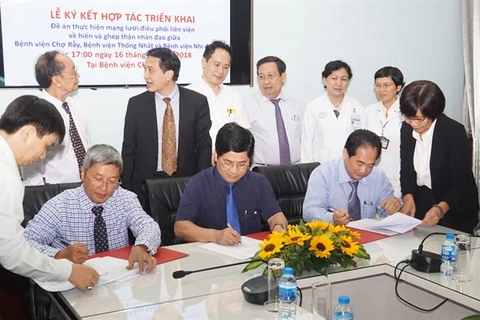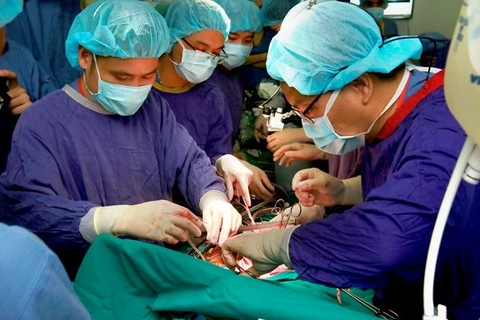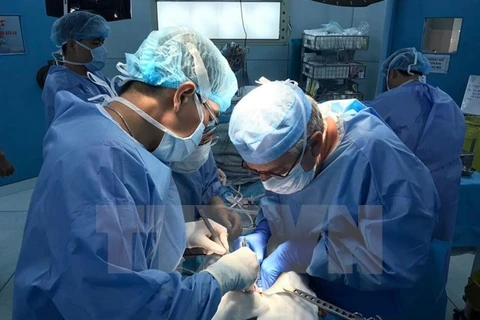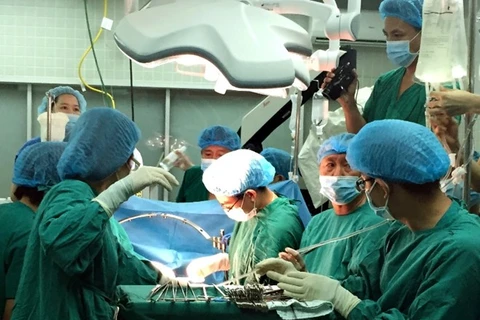Hanoi (VNA) – The Hanoi Red Cross Association has called on staff members of its units across the city to register as organ donors in a move to popularise the value of humanitarian organ donation in the community.
At the launching ceremony on February 18, the association’s chairman Nguyen Sy Truong cited the Ministry of Health’s information that since the first organ transplant in Vietnam in 1992, the number of such cases has remained low.
Meanwhile, the number of patients waiting for donated tissues and organs is growing fast, he said, adding that only a few of them have had the opportunity to receive organ transplants due to the scarcity of donors in the country.
Registering to donate organs after death will help bring life to patients and create a humane society, Truong said, expressing his hope that the call will receive widespread support from Red Cross workers and the public.
In the programme, units of the Hanoi Red Cross Association will step up communications about organ donation among its staff members and the community via mass media outlets, training courses, and other Red Cross activities.
Collectives and individuals with excellent achievements in the communications work, along with organ donors, will also be honoured.
According to the Vietnam National Coordinating Centre for Human Organ Transplantation under the Ministry of Health, in Hanoi’s major hospitals alone, around 6,000 patients are in need of a kidney transplant and more than 1,500 patients are on the waiting list for liver transplants. Over 6,000 people need cornea replacements, while heart and lung transplants are critical to saving hundreds of others.
As of August 31, 2018, the number of brain-dead and circulatory-dead donors had reached 223, accounting for 6.6 percent of the total donors. The majority of organs used in transplantation in Vietnam are from living donors. –VNA
At the launching ceremony on February 18, the association’s chairman Nguyen Sy Truong cited the Ministry of Health’s information that since the first organ transplant in Vietnam in 1992, the number of such cases has remained low.
Meanwhile, the number of patients waiting for donated tissues and organs is growing fast, he said, adding that only a few of them have had the opportunity to receive organ transplants due to the scarcity of donors in the country.
Registering to donate organs after death will help bring life to patients and create a humane society, Truong said, expressing his hope that the call will receive widespread support from Red Cross workers and the public.
In the programme, units of the Hanoi Red Cross Association will step up communications about organ donation among its staff members and the community via mass media outlets, training courses, and other Red Cross activities.
Collectives and individuals with excellent achievements in the communications work, along with organ donors, will also be honoured.
According to the Vietnam National Coordinating Centre for Human Organ Transplantation under the Ministry of Health, in Hanoi’s major hospitals alone, around 6,000 patients are in need of a kidney transplant and more than 1,500 patients are on the waiting list for liver transplants. Over 6,000 people need cornea replacements, while heart and lung transplants are critical to saving hundreds of others.
As of August 31, 2018, the number of brain-dead and circulatory-dead donors had reached 223, accounting for 6.6 percent of the total donors. The majority of organs used in transplantation in Vietnam are from living donors. –VNA
VNA
























